Substance and meaning are not the exclusive province of dialogue driven dramas. Nor are they limited to “subtle” films with complex plotting and layered characterizations. Sometimes the simplest and seemingly most pedestrian films actually have something more on their minds than action and FX. Whether or not they successfully convey such ideas is another story. The effort is to be applauded regardless. Sometimes the most profound and important ideas are better expressed through fairly straight forward and understandable means.
Book of Eli tells the tale of Eli (Denzel Washington), a missionary in a post apocalyptic world where war has brought about the collapse of civilization; reducing much of what’s left of humanity to savagery and amorality. What were once considered basic necessities of life are now looked upon as rare and precious commodities. Eli roams this barren world armed with weapons and extraordinary martial skill. He also has in his possession a book that holds great meaning for him. It gives him a sense of purpose, which has also become a rarity.
Eli happens upon the post apocalyptic equivalent of a frontier town. The town’s mayor, Carnegie (Gary Oldman) becomes obsessed with the book Eli holds in his possession. Carnegie believes it is the key to dominating what is left of civilization. Eli refuses him and continues on his way. Carnegie dispatches his enforcer Redridge (Ray Stevenson) to retrieve the book. Solara (Mila Kunis), daughter of Carnegie’s concubine Claudia (Jennifer Beals), befriends Eli and accompanies him on his journey.
Book of Eli is the Hughes Brothers first film since 2001’s From Hell, which was their first attempt at mainstream genre filmmaking. Eli continues in that direction, as it is clearly intended to appeal to a mass audience. It makes full use of the Hughes Brothers abilities as technical craftsman, if not their ability as storytellers. It also provides star Denzel Washington with an opportunity to explore a character that communicates thoughts and emotions through physicality as opposed to dialogue.
The Hughes Brothers have always possessed a keen understanding of the language of film. In Book of Eli, that knowledge is used to create a visual look that is stylized without being overly so. The sepia and ashen tones reflect the subdued emotions of the protagonist and the hopelessness of a morally and culturally bankrupt world. The shot composition feels deliberate. Just a glance at any single frame from Book of Eli let’s you know that it looks exactly as its makers intend it to.
The action sequences are crisp. The shot selection incorporates a variety of camera angles that allow the viewer to easily process and understand what is happening onscreen. The fight scenes, reflecting the visual sensibilities of the film, are not over choreographed. They contain the acceptable amount of fancy moves and acrobatics, but thankfully do not push the envelope and overwhelm the audience.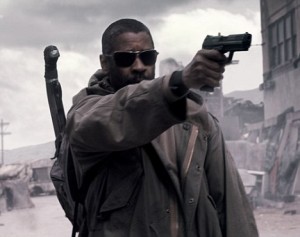
As Eli, Denzel Washington exhibits the easy charisma of a sure handed professional. He never over emotes, giving each scene just what is needed to get the point across. He never succumbs to the temptation of going for “Big” dramatic moments. Gary Oldman makes for an uncharacteristically subdued mayor Carnegie, his usual scenery chewing reserved for a few key moments.
Book of Eli’s only real shortcoming is the unnecessary “surprise” at the end, which stretches believability just a tad and doesn’t completely line up with the film that played before it. The plot and narrative function just fine within the context of a straight forward action film. One suspects that the final moments of the film were included just to make the film seem more substantial or memorable. Instead, it just feels extraneous.
Book of Eli is the first true surprise of the 2010. It melds elements of the classic Western, Japanese Chambara cinema and post apocalyptic sci-fi in a visually striking package. Its bare bones story engages us almost to the very end, and it ponders some serious ideas without sacrificing entertainment value. The Hughes Brothers have maintained their love and understanding of cinema during their hiatus and have returned to complete their evolution as filmmakers.



![]()
3.75 Out of 5
Follow Malice Intended on Twitter @ http://twitter.com/renaissance1977
Follow Us on Twitter @ http://twitter.com/planetill
Join Us on the Planet Ill Facebook Group for more discussion
Check out Planet Ill’s page on Essence.com
Follow us on Networked Blog

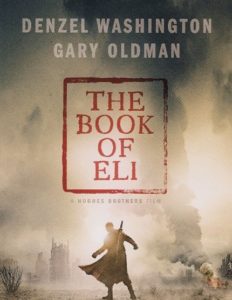

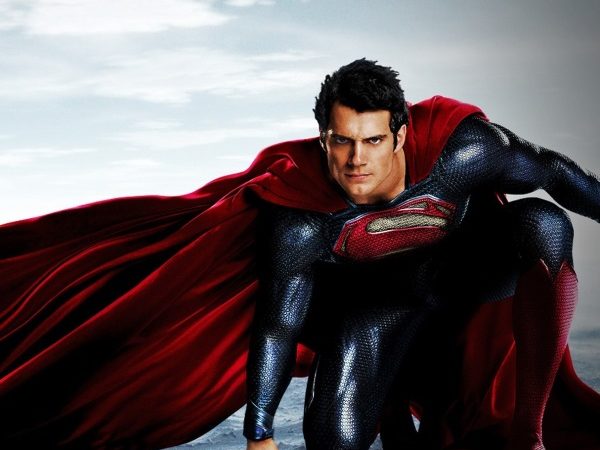
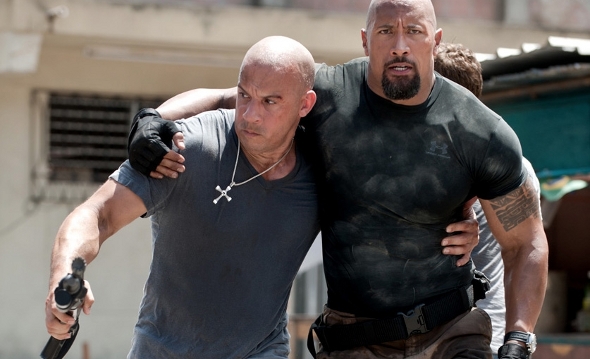
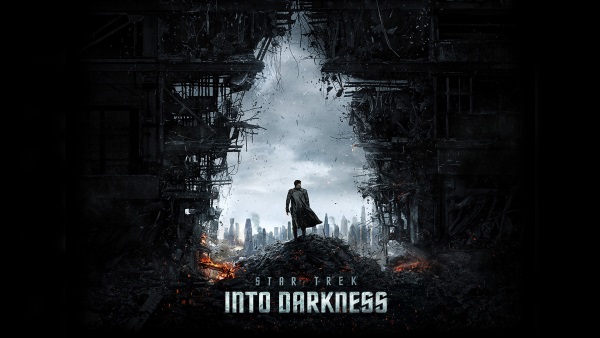
4 thoughts on “Movie Review: Book Of Eli”